Mykhailivka municipality. Living next to the war
Due to its location in the Zaporizhzhia District of Zaporizhzhia Oblast, Mykhailivka municipality faces unusual conditions. According to Tetiana Bordyug, Head of the U-LEAD with Europe Regional Office in Zaporizhzhia, "the oblast is quite a special region during martial law. Its territory includes actually rear-guard municipalities, temporarily occupied territories, and municipalities affected by hostilities." As for this particular rural municipality, according to the order of the Ministry of Reintegration, it is included in the "List of territories where hostilities are (were) conducted" along with the entire Zaporizhzhia District.
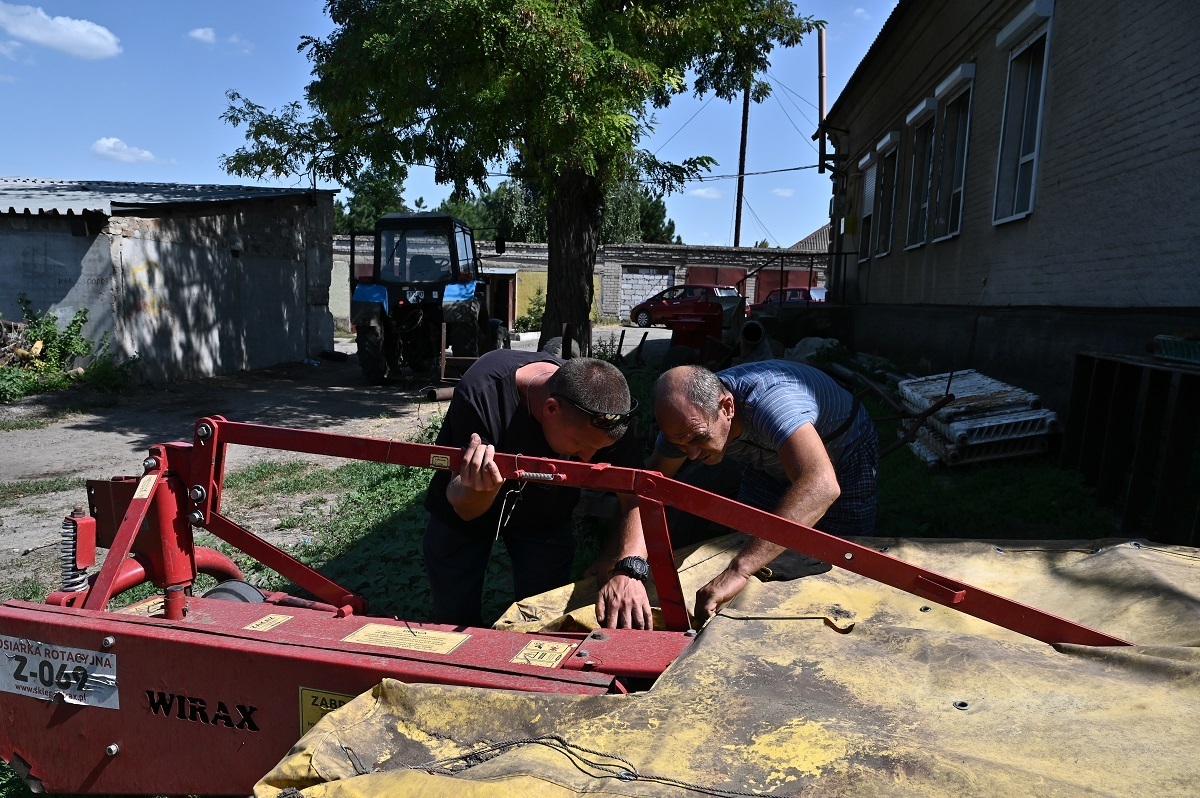
In the maelstrom of the martial law
In practice, this situation of the municipality resulted in an unusually active population mobility. Since the beginning of the full-scale Russian aggression, about three thousand people have left the territory of the Mykhailivka rural municipality, while the same number of internally displaced persons have moved in. That was the first stage. Later, more IDPs arrived, along with the return of people who fled their homes after 24 February This resulted in a (presumably interim) increase in the population of municipality from the former 7,500 to almost nine thousand.
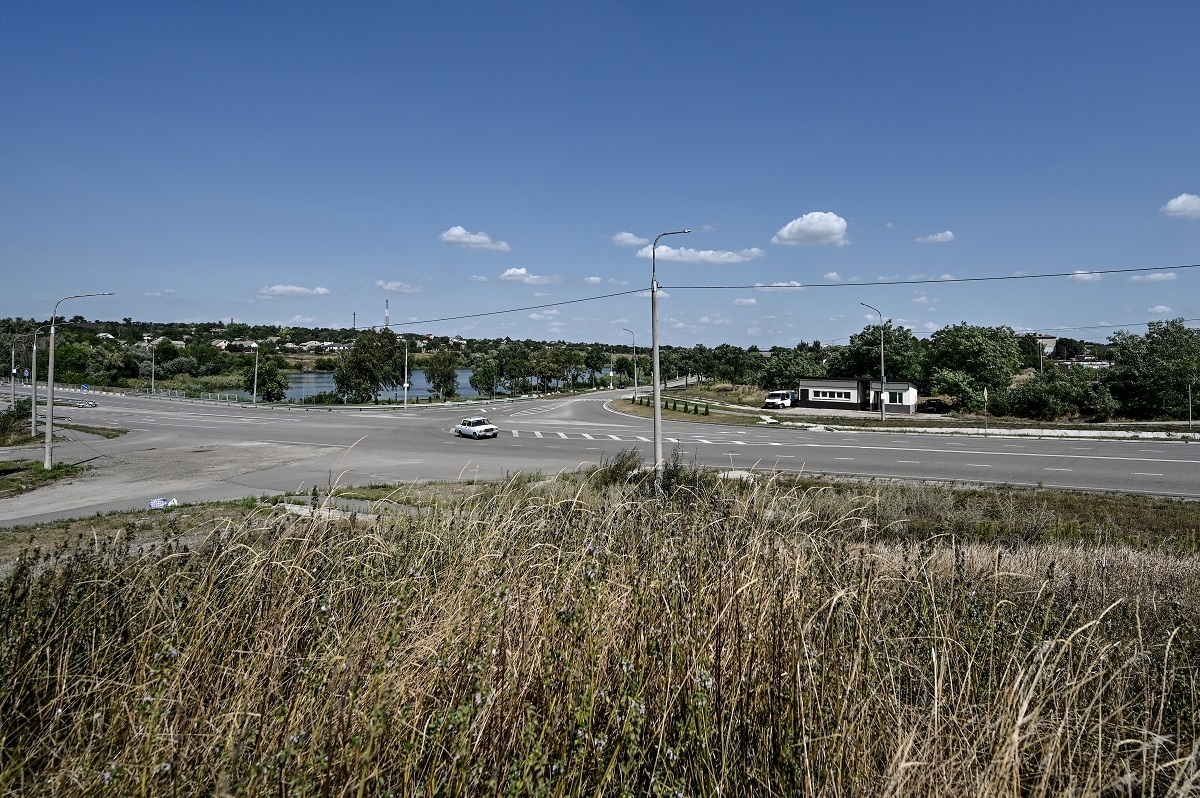
Of course, this has affected the life of the municipality. As previously reported by the U-LEAD Programme: "Since the beginning of the full-scale invasion, 13 out of 50 employees of Mykhailivka municipality left Ukraine. The rest of the staff had to redistribute their existing duties to be able to perform all routine tasks and meet the new challenges of the war."
Thus, Olena Komanyuk, formerly a specialist in the financial department, took over all the relevant duties after the departure of her head and spent the last year and a half performing them alone. According to her, the U-LEAD trainings helped her effectively manage tax administration (for example, create a taxpayer database) and advise other departments in task redistribution.
In particular, she consulted specialists of the education department and helped them in developing a system where the accountant checks and registers contracts with employees of educational institutions and suppliers, the procurement specialist publishes them in Prozorro, and the chief specialist submits contracts and all supporting documentation to E-Data. Moreover, Olena gave advice to the social protection department on managing interaction with IDPs so that colleagues could cope with the new workload. When asked by Ukrinform how the municipality manages to survive in the current circumstances, she answered:
- We strive to cooperate with all taxpayers to ensure that they also pay the maximum amount of taxes. That is direct work with taxpayers. In order to fill the budget in some way. Whenever possible, we repaired some road sections that were nearly unusable. We managed to allocate one and a half million for these needs. We provide assistance to the population: kept the mandatory payments: compensation for transport to haemodialysis; our people take care of disabled relatives. They are also entitled to payments; this year we pay them fully, trying not to deprive people of these payments, as these are their livelihoods. We do not cut these expenses.
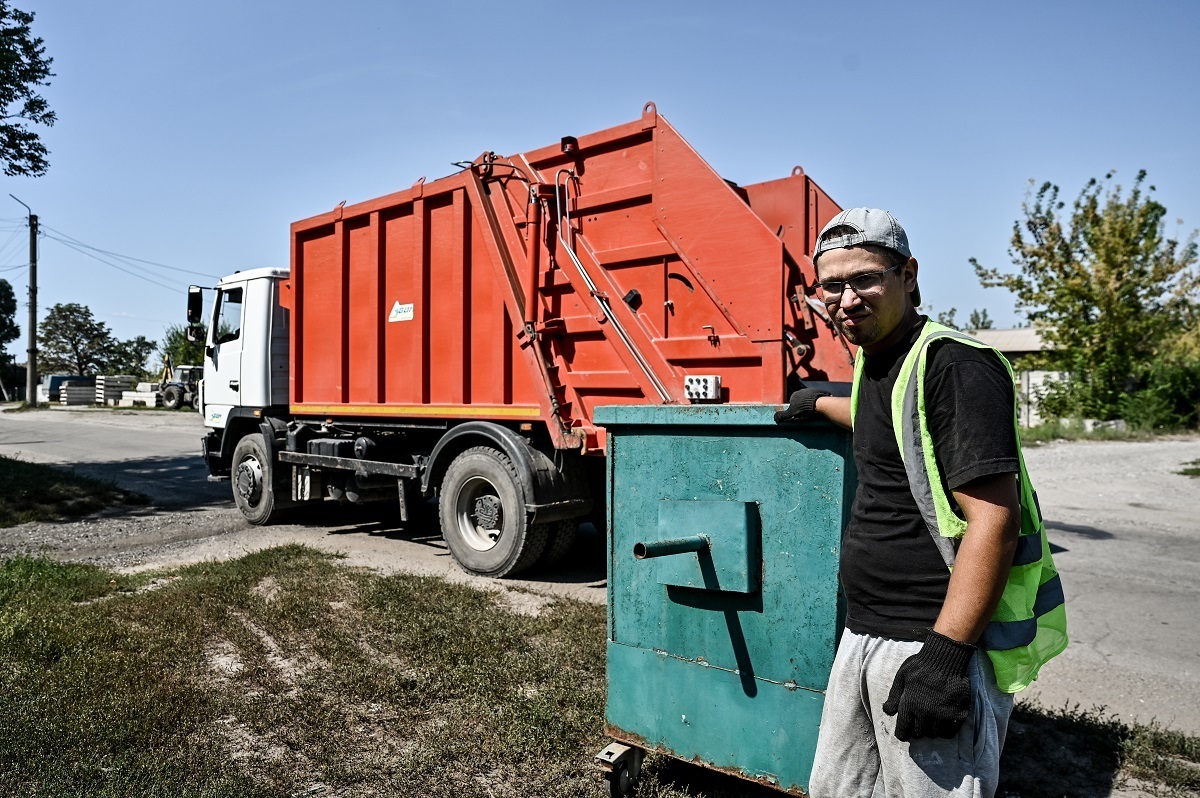
Oleksii Zhylin, IDP from Kurakhovo
Assistance to IDPs: Search for housing and employment
— "The Regional Office in Zaporizhzhia Oblast cooperates with Mykhailivka municipality since its voluntary amalgamation," said Tetiana Bordyug. — "Currently, the municipality is located in a safer part of Zaporizhzhia Oblast, if at least one territory in the region can be considered safe, so there is a large number of internally displaced persons”. U-LEAD with Europe partially covered the needs of the municipality in IDP support in 2022 by providing the Shelter assistance package, which included a temporary shelter, water tanks, generators, equipment for shelter points, etc. But this is only a small part of the efforts made by the head of the municipality, Alla Korol, together with her team. Alla is a woman leader who skilfully organises the work of the municipal staff and monitors the development of specialists. I hope for our further and beneficial cooperation.

Alla Korol
First of all, we found out the situation with the number of people currently residing on the large territory of municipality, which includes 15 villages.
— We already have 4,000 IDPs, and our residents keep coming back. More than a thousand have returned. Today, nearly 9,000 people live in the municipality. We work with IDPs helping them to resettle. Some of them move in on their own. The primary housing includes private houses, flats and summer cottages. How do they get employed? We make announcements, cooperate with our farmers, because they are the main employers here. They also contact us: "Please give us information, we need people". Besides, we are close to the city of Zaporizhzhia, 12 kilometres away in Shevchenkivskyi district and 8 kilometres away in Zavodskyi district. IDPs have the opportunity to get employed in the city.
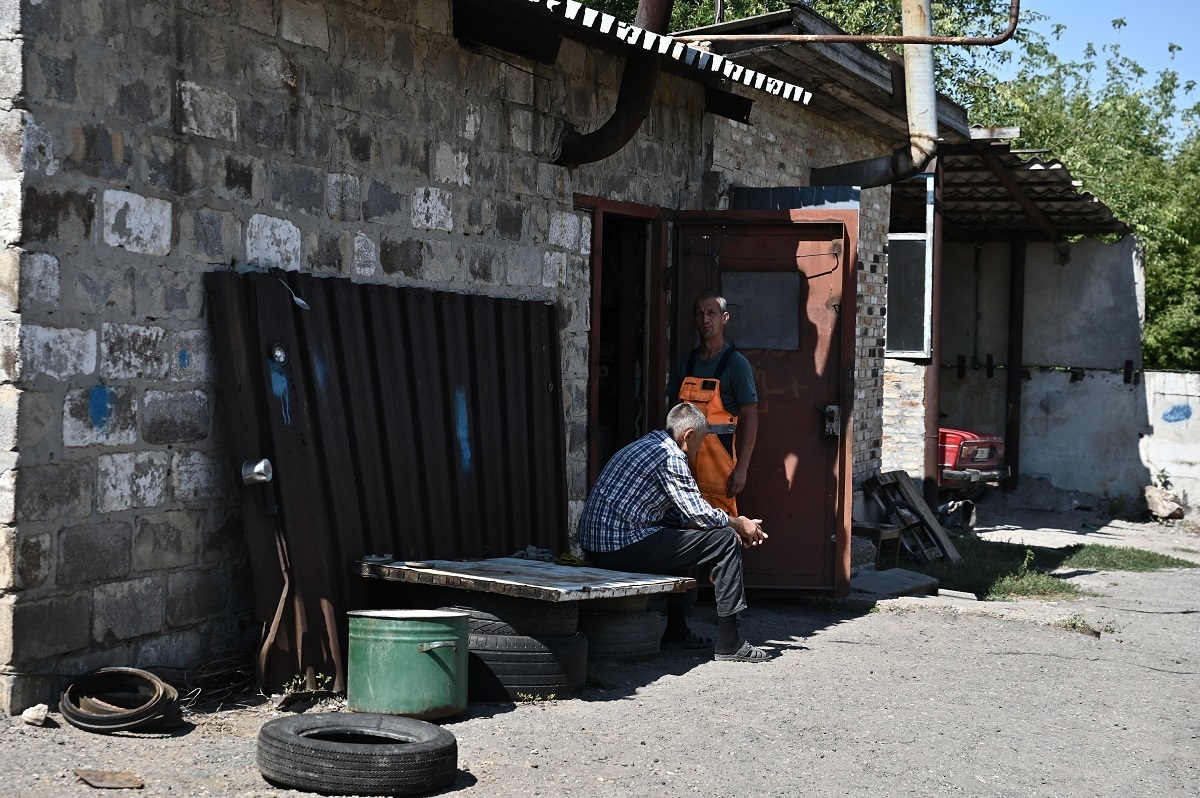
The municipality did not develop separate programmes for IDPs, because since last year, after the Russian invasion, we faced a major problem with budget execution because of the tax exemptions for entrepreneurs.
— Only last month we managed to meet the budget because of a subvention from our neighbouring municipality. We jointly implement a water mains construction project. Since our village council developed this project, and we fully funded it with UAH 1,200,000 on our own, they reimbursed us. After all, we are jointly to receive water through the new water supply system. The Department of Housing and Communal Services of the Oblast Administration is to perform the construction work.
The water supply project was developed in 2018, but only this year we received financing from the Reconstruction Fund.
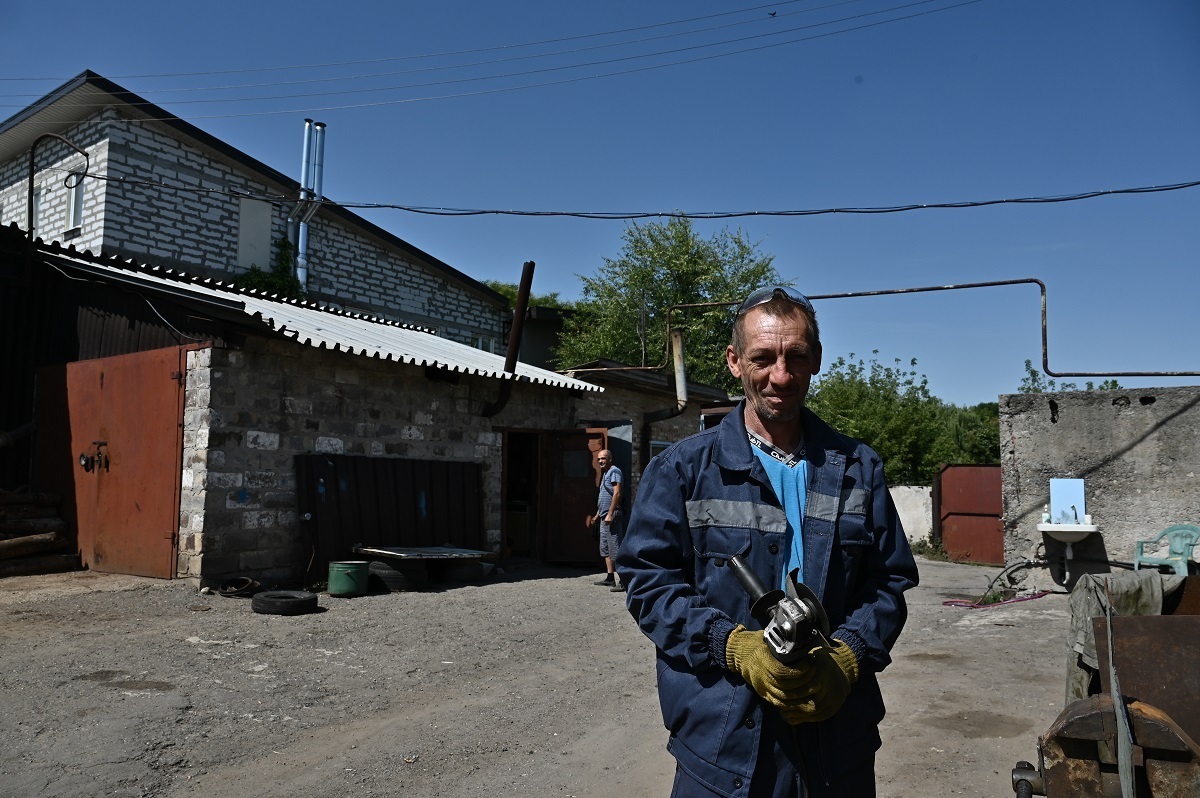
— In parallel, we have an old water supply system with water losses of 60 to 70 per cent. In fact, the pipe is not even buried because of constant bursts. The new water supply system is yet to be installed as the money is being provided only now. Only yesterday the winner of the tender arrived to determine where to start. Because the water supply line runs through areas with growing sunflowers. Digging works start only after the sunflower harvest. Around September.
At the time, the municipality replaced 2 kilometres of pipe on its own. The couplings, actual pipes, as well as soldering equipment were provided by the Norwegian Refugee Council (NRC).
— They provided us with pipes and equipment worth 12 million. And our municipal services replaced the most emergency section on their own, because it was really a sieve.
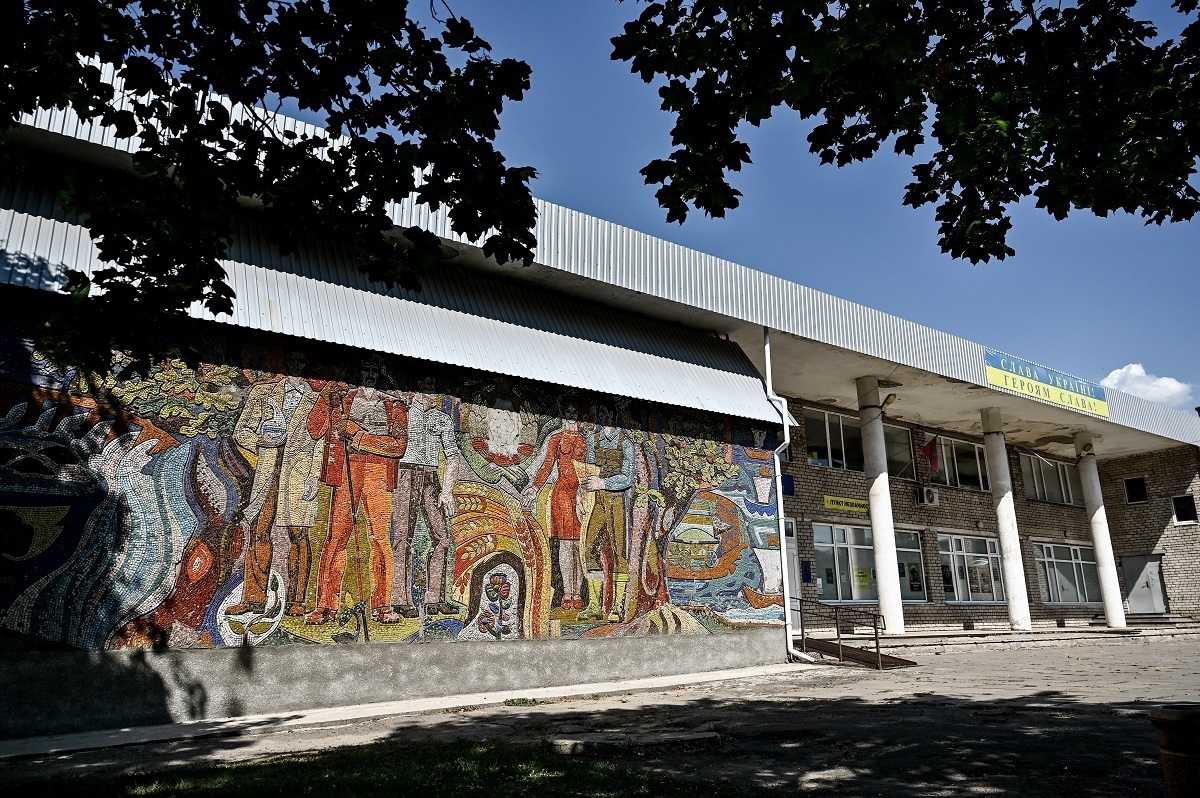
Municipal development programmes
— Do you have such programmes as Food Security?
— No, we don't have anything like that. In general, there are many programmes, and Drinking Water is the first among them. As for food security... There is a programme for the development of healthcare (we do suffer in this regard). We have a programme for the State Emergency Service. We established a municipal service called the Local Fire Brigade, and it is operational today. There was a competition; we received a fire truck from Germany through U-LEAD. Currently, we get another one. U-LEAD is an organisation that stays with us from the very beginning. They explained what decentralisation is, how to amalgamate municipalities and supported our first efforts in amalgamating until 2020. We had a lot of questions, both financial and general — on the organisation of municipal activities. U-LEAD provided constant training.
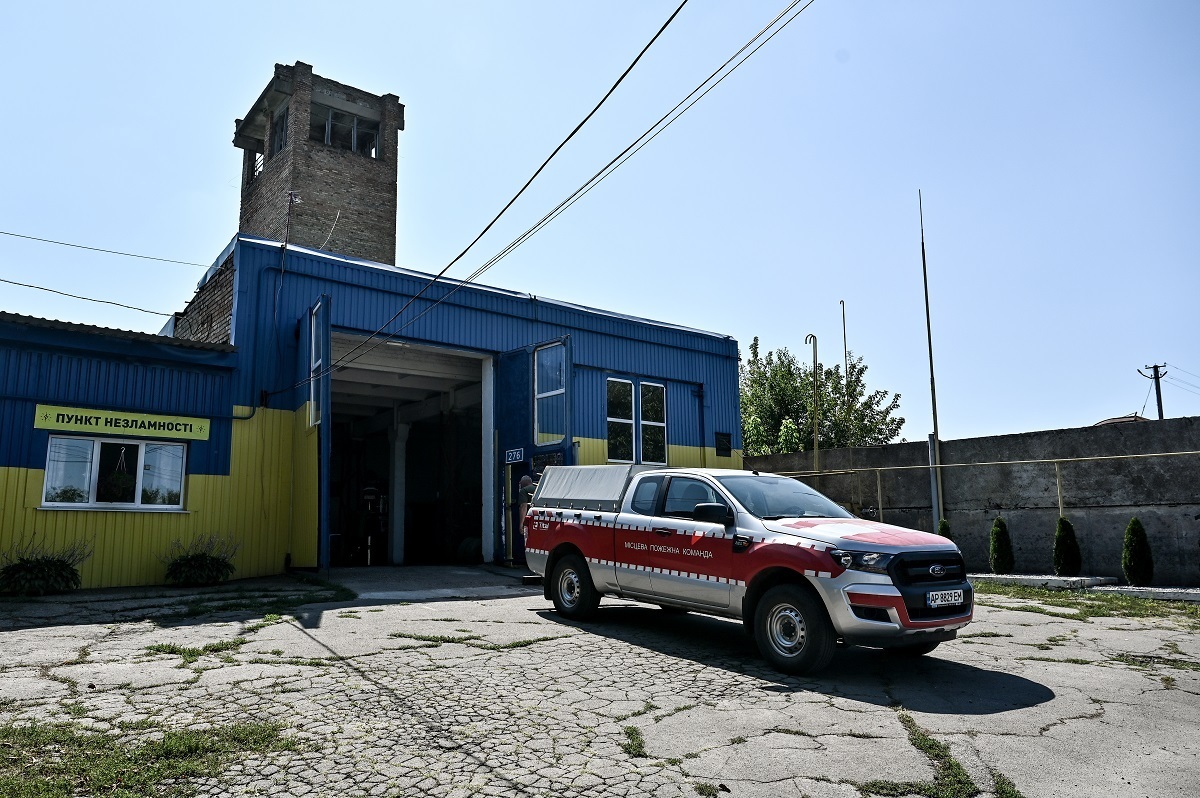
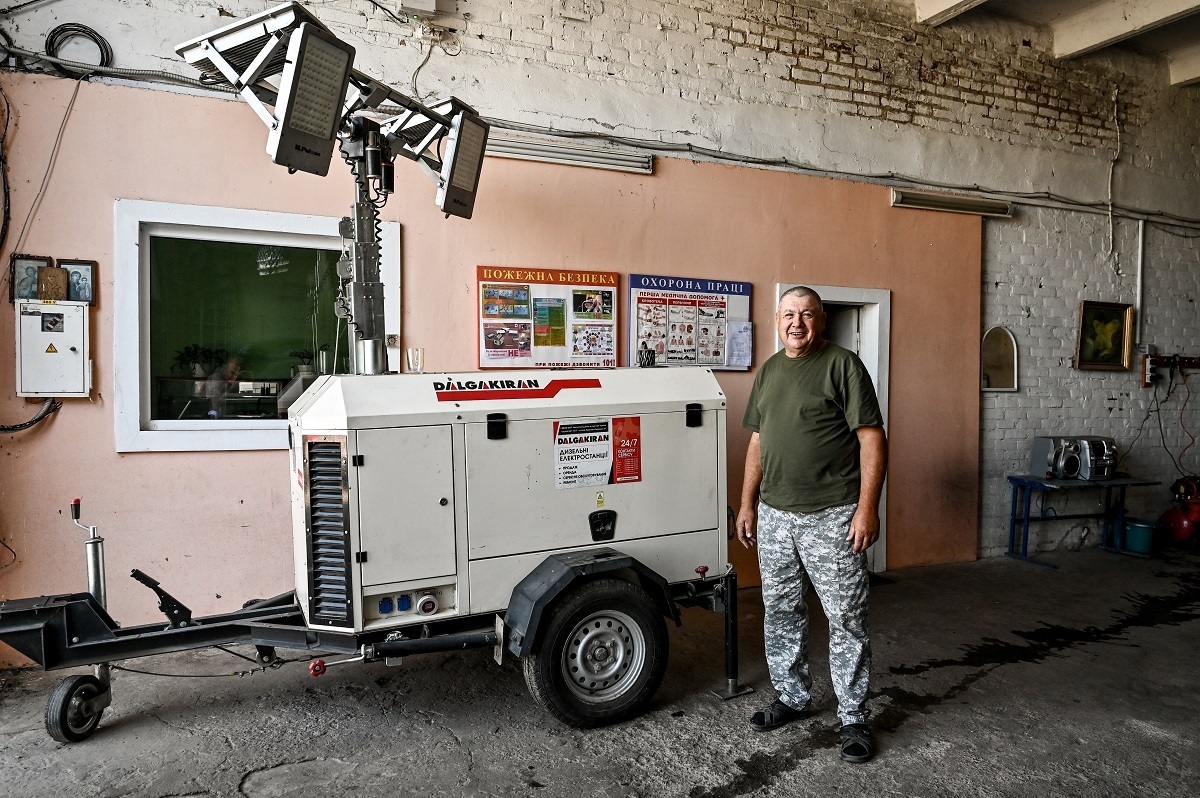
According to Alla Korol, the U-LEAD with Europe Programme helped to organise the ASC's work.
— This is an organisation that it would be very difficult to work without. Moreover, we lack specialists. Both in social protection and in the ASC; state registrars became a very big challenge, because finding a specialist is really difficult. But together we overcame these problems.
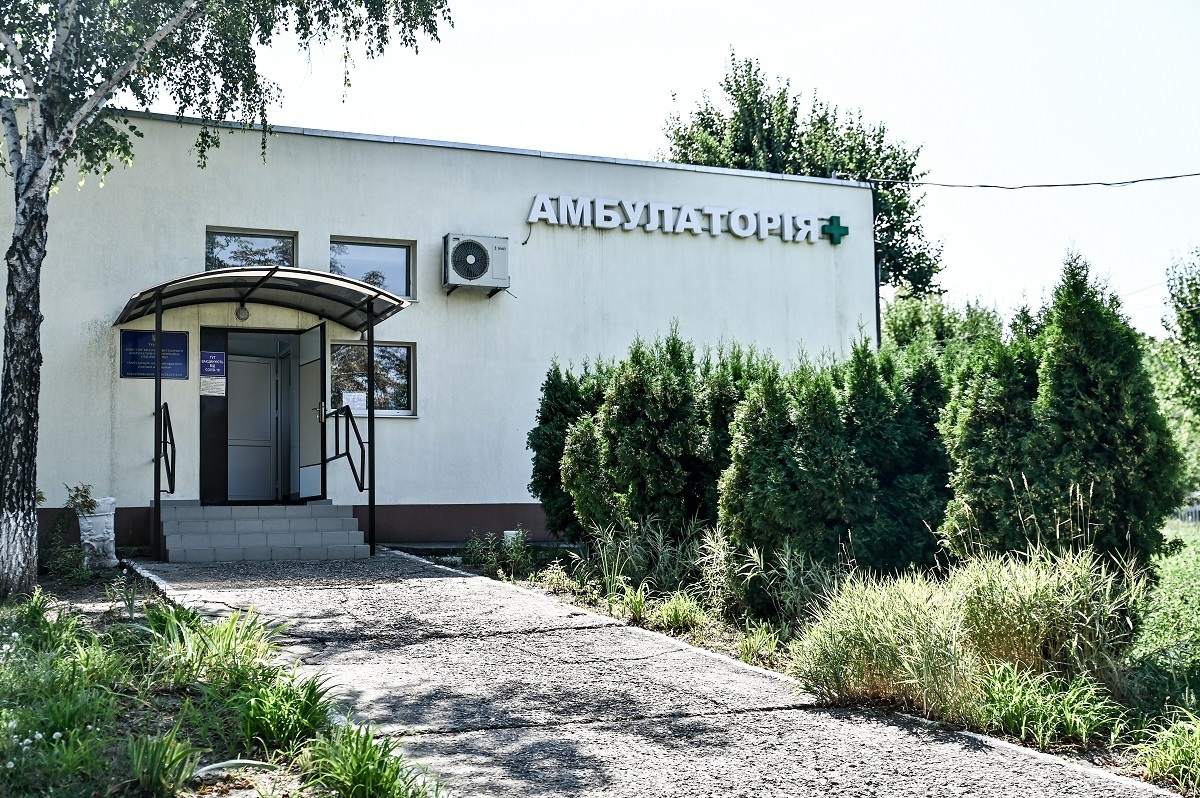
Healthcare reform in Mykhailivka
As for the healthcare programme, the municipality still has some work to do.
— U-LEAD not just invited to the training, and not only us, village and city heads, but also healthcare professionals, who at that time — as I saw — supported the healthcare reform. We all attended the training without missing a beat, because it was new and extremely important for us — and extremely difficult.
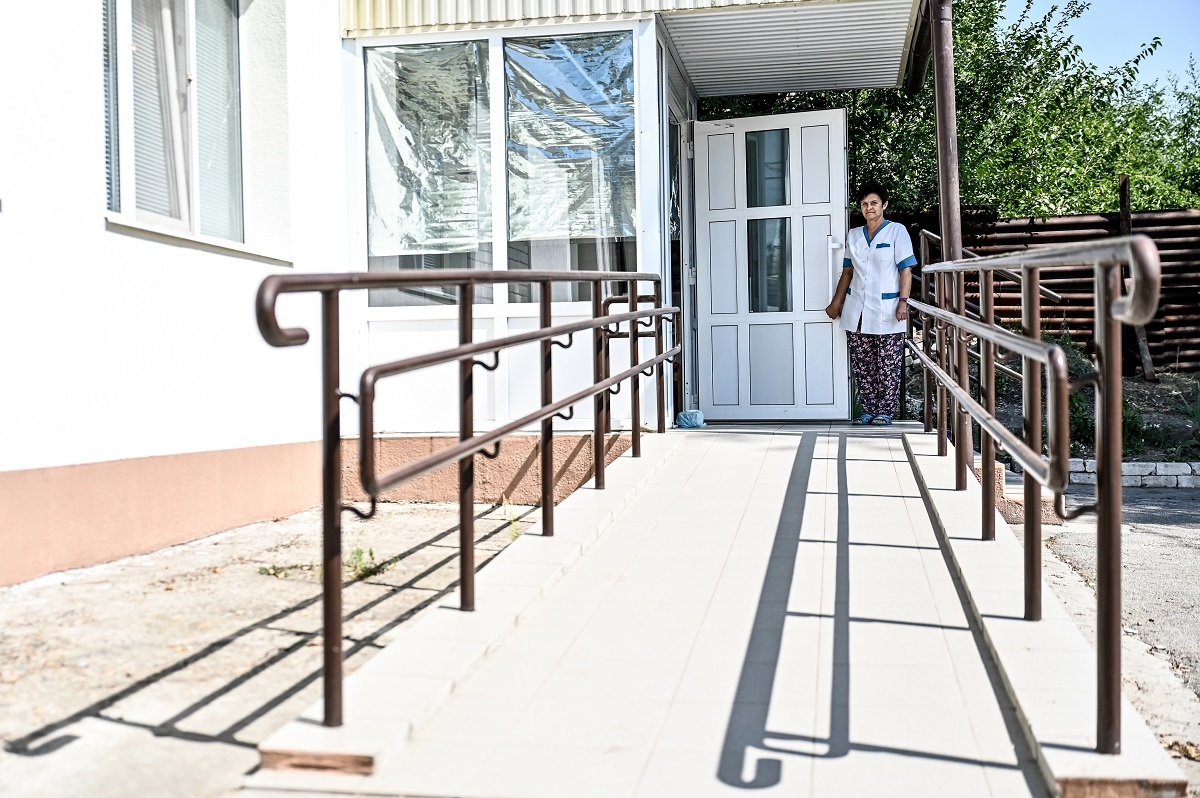
After the training course was completed, we set up our own Municipal Non-Profit Enterprise (MNE) in Mykhailivka.

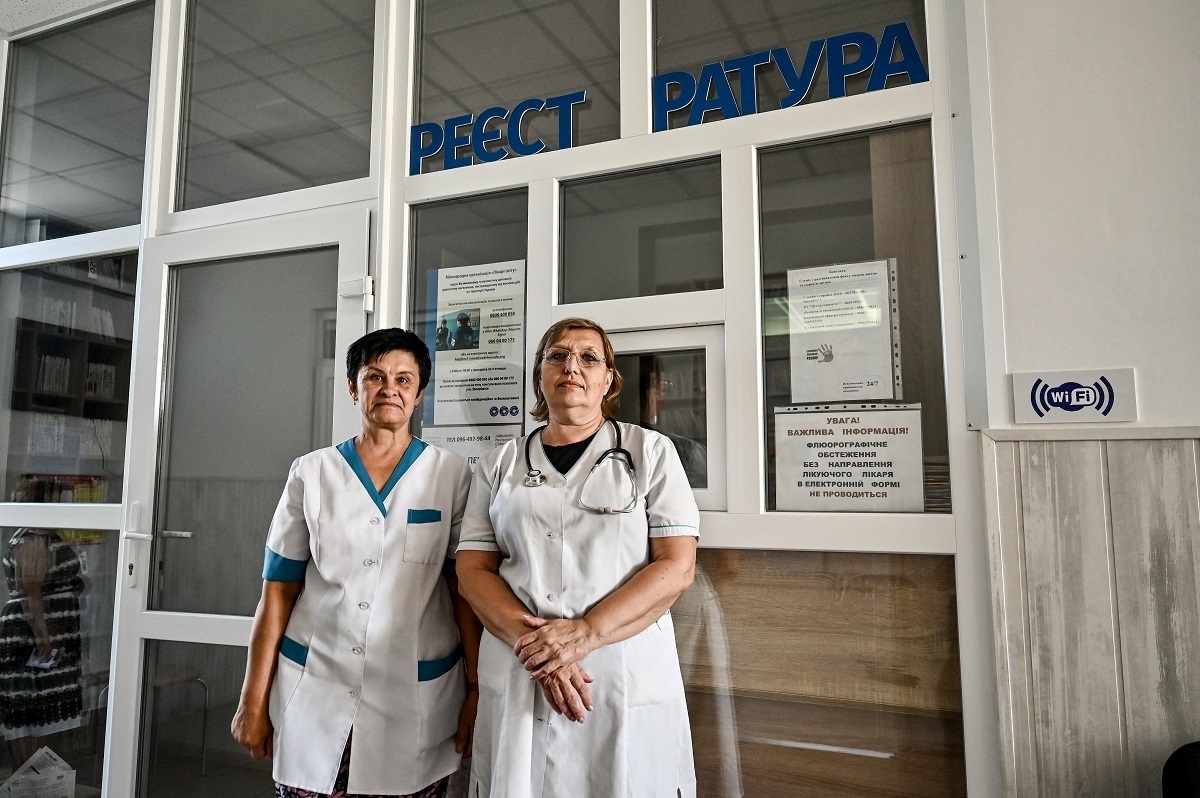
— There is no secondary healthcare in our municipality, only primary care: two ambulatories and three health posts. The lack of family doctors has always been and remains a problem here. And when we created the MNE, we faced the problem to find a director. There are very serious requirements, but we set up our own municipal healthcare enterprise, got a licence, and even held a competition for a director. We hired a person, but the district MNE convinced the doctors (we had only two) to stay with them. So now the MNE does not work here, and the former Vilnyanske district MNE operates on our territory. Both doctors reside on our territory, but this is not enough for a population like ours.
— So, once the doctors appear, does the MNE start working immediately?
Yes, indeed. We did not stop it. We control the tax office, and in 2020, we renovated our ambulatory clinic in Mykhailivka, meeting all the requirements — a ramp, doors, toilets — all of which are compliant. Today, we have a project to reconstruct an ambulatory clinic in Bohatyryivka. This is a big village; the premises are large, and the project envisages the construction of two flats. We have interns we have worked with. They promise to join us after graduation.
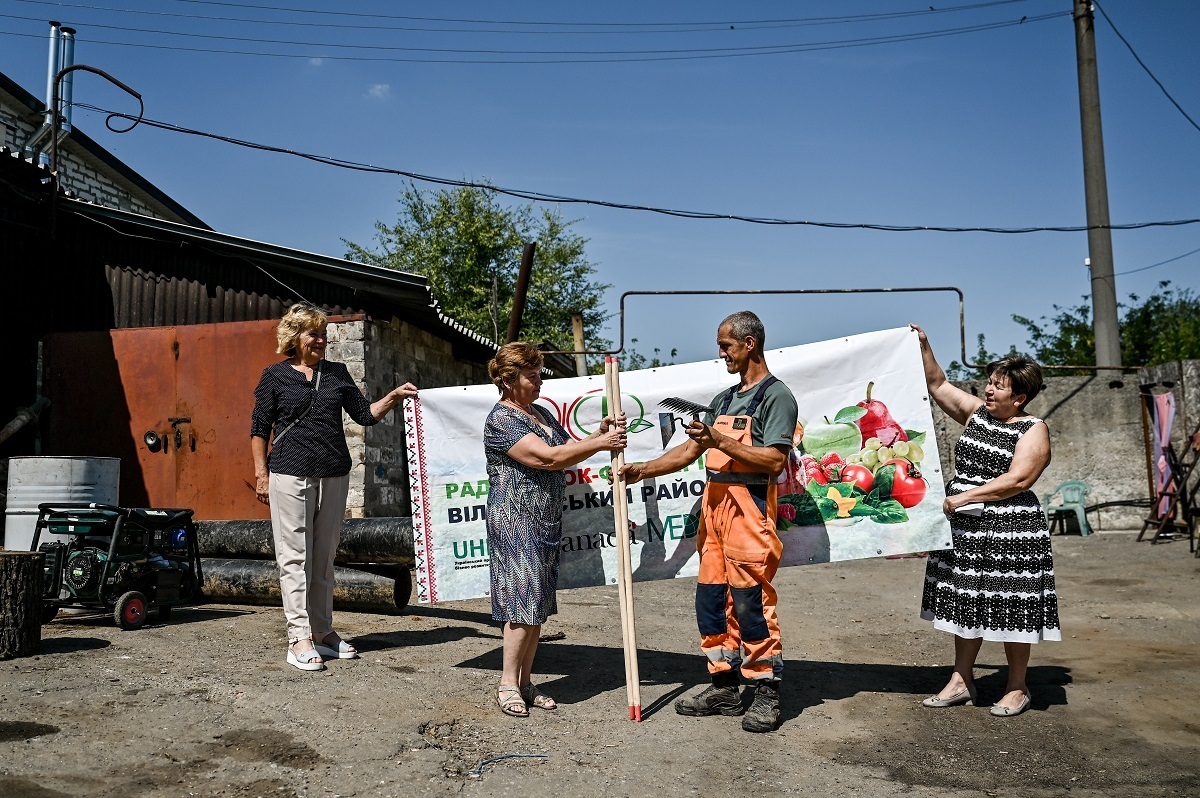
Farming activities
How does the Mykhailivka rural municipality look like today? It consists of 15 settlements, and all of them are "alive". There are none that are called "extinct".
— Today we have about a thousand, as we call them, "real IDPs". These are people who came to us from the temporarily occupied territories or areas affected by active hostilities. These are Orikhiv, Gulyaypole, Vasylivka. There are also people from Enerhodar, Melitopol, and Mariupol. Those who needed to get a job are all employed. A lot of people re-registered with us from Zaporizhzhia. The city is also listed in the register of the Ministry of Regional Development as a place of possible hostilities. So is the entire Zaporizhzhia district. People from there also stay on our territory, because we have 15 settlements and 132 garden associations. This is the bank of the river Dnipro! Each association consists of about forty garden plots (more than 5,000 in total). The owners believe that it is safe and live here.
We don't really have any business support programmes, but we work very closely with the Council of Women Farmers in our territory. We have participated in some of their programmes. This includes the Victory Gardens programme, where we received seeds and planting material, and then planted and harvested them — both for use and for sale. Just recently, we received assistance from the Council of Women Farmers for IDPs, including shovels, rakes and hoes, in order to cultivate the land in the garden associations where they live and plant something. And the previous year, they helped us with planting material — both for our farmers and IDPs. This year, they also helped us with feed, so that we could raise some chickens and calves. Feed for pigs, chickens and cattle. As for planting materials, it was potatoes, borsch sets: beetroot, carrots... We constantly cooperate with them. They help us, and in this way we encourage people to provide for themselves.
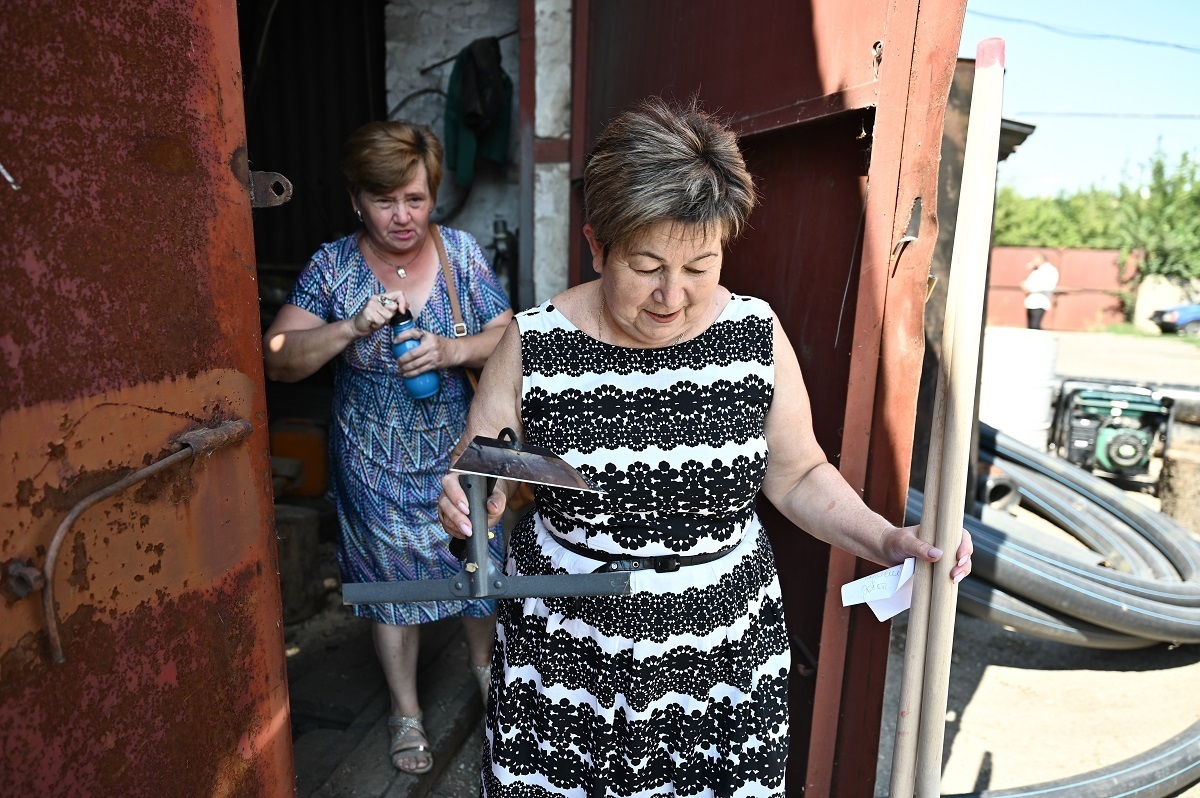
Member of the Council of Women Farmers of Ukraine
— What region does the Council of Women Farmers cover?
— This is our former Vilnyanske district. In general, as far as I know, this is an all-Ukrainian organisation. And we cooperate with our women who work and live in the municipality. There are three of them who are active. Once, representatives of an international organisation, I think from the Netherlands, came to us, and our women competed to buy equipment to process fruit: To make drying, fruit paste... This year, the village harvested a lot of apples. So people can pick some for themselves and bring some to the farmer for processing. And the farmer already knows where to send the finished product. For example, to the Ukrainian Armed Forces, orphanages, or large families.
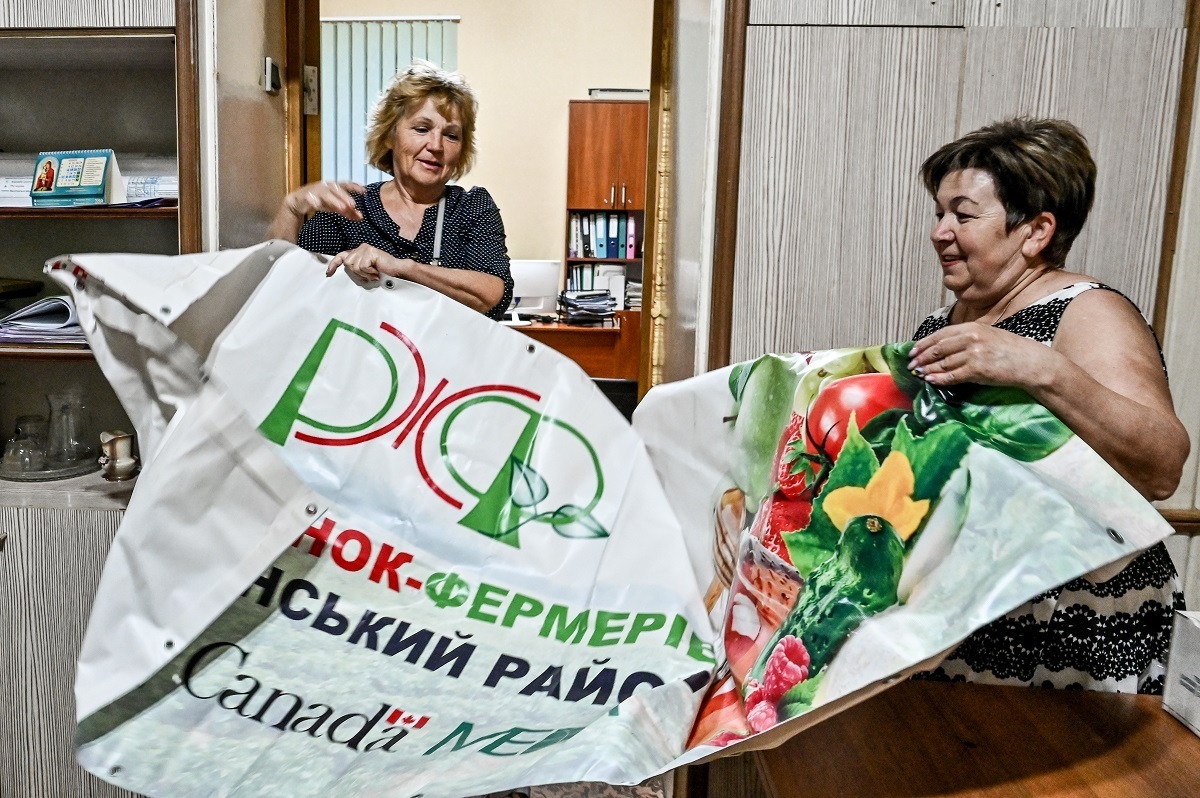 Member of the Council of Women Farmers of Ukraine
Member of the Council of Women Farmers of Ukraine
We have IDPs from Orikhiv. They work for a farmer who grows vegetables, and one of the women told me that in addition to harvesting vegetables, they also prepared them for the winter. They shredded cabbage, canned it with tomato juice, and brought it to the centres that house people from their own municipality in the former Orikhiv district. Nesterianka village. We delivered it so that people could cook that borsch or make cabbage pies. And not only that. This is also a way to help our people.
Help for the military
I couldn't avoid asking how the municipality helps our defenders.
— At the beginning of the war, in 2022, we adopted a programme to support territorial defence. The territorial defence unit was based nearby, and at their request, we bought everything from bayonet shovels to freezers and generators. We do the same today. We raise funds, make donations, sew underwear for them, help our hospitals — not financially, because we cannot spend budget funds — but everyone who can contribute as much as they can and we buy fabric. We have seamstresses and volunteers who drive and deliver food. Right now, we have just gathered potatoes, carrots and beetroot to bring the guys to the front line. Another programme we run is burying our guys who died in the war, entirely at the expense of the municipality.
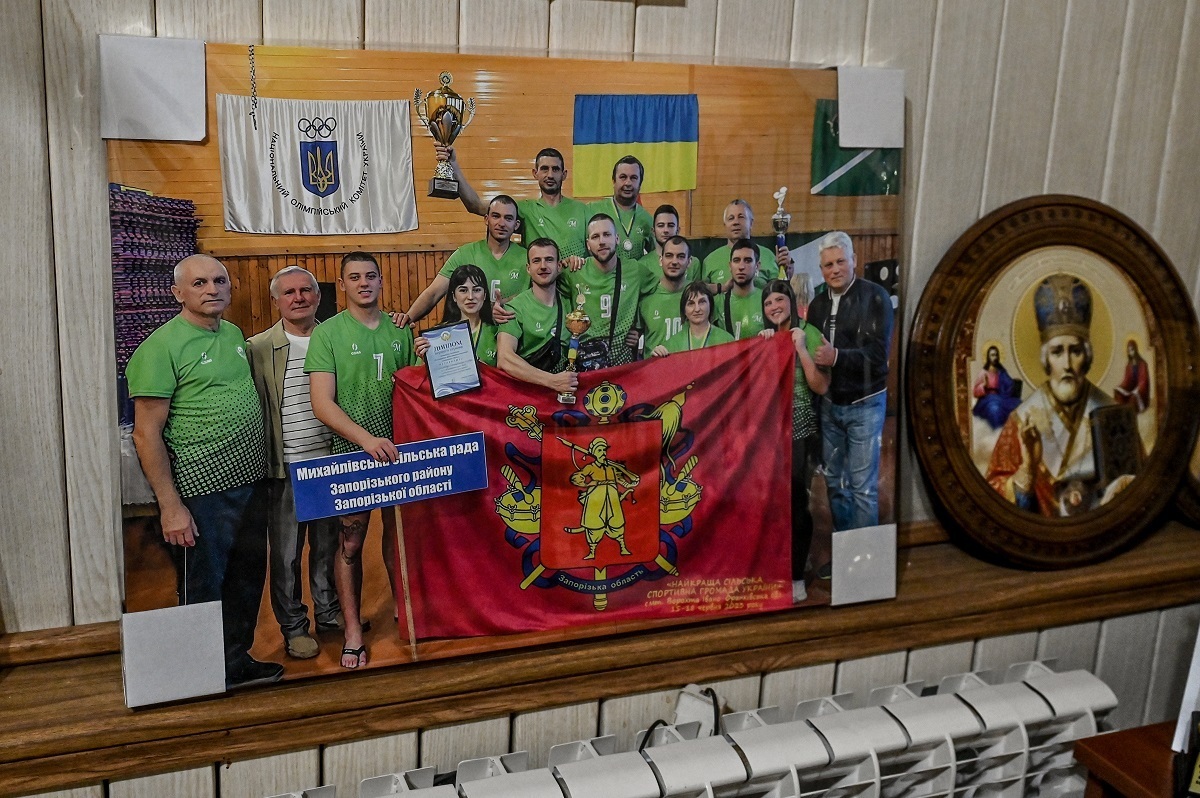
We also allocate funds for the treatment of tuberculosis, cancer, orphan diseases, strokes, heart attacks, etc.
— People turn to us, and we provide them with financial assistance. We support our bedridden disabled people, transfer funds to the Vilnyanske MNE for purchasing diapers and disposable nappies... We constantly work with charitable foundations that bring us the same hygiene kits and food for children. All our residents and IDPs are supported on a monthly basis.
Finally, Alla Mykolaivna shared her thoughts on the changes in the lives of local municipalities:
— I am delighted with the decentralisation reform. In meetings with the citizens, I tell them: "A military victory is only one thing. But we have to achieve another one. Each person has to start with themselves."
Text by: Mykhailo Bublyk, Cherkasy

Tags:
Область:
Запорізька областьГромади:
Михайлівська територіальна громадаSource:
Укрінформ
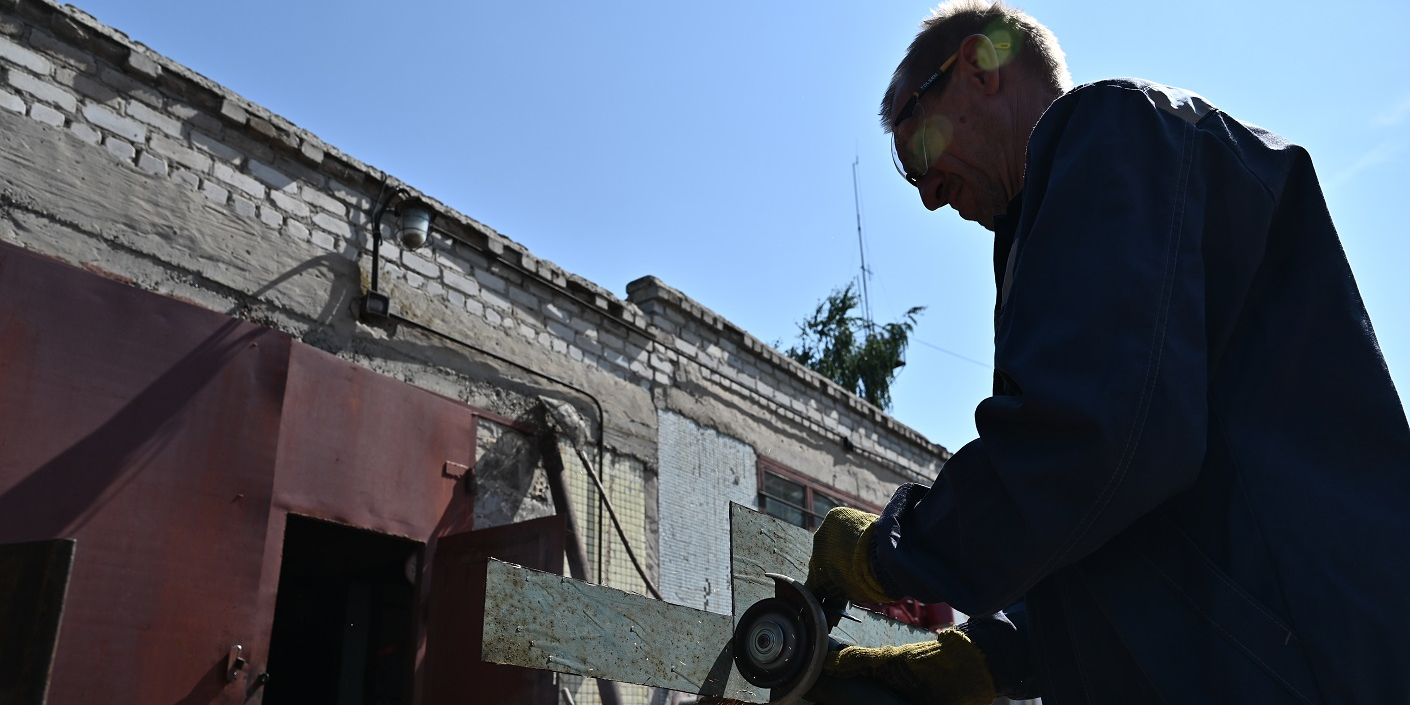
24 November 2025
Згуртованість через різноманітність: як...
Авторки: Тетяна Лукеря, Олександра Койдель, Центр демократичної стійкості Київської школи економіки У попередніх...
24 November 2025
Прозора відбудова: чому інженер-консультант стає необхідністю для громад
Прозора відбудова: чому інженер-консультант...
21 листопада у Києві Міждержавна гільдія інженерів-консультантів провела стратегічну дискусію за участі керівництва...
24 November 2025
Презентація дослідження «Підконтрольність та підзвітність старост»
Презентація дослідження «Підконтрольність та...
27 листопада 2025 року о 9:30 відбудеться презентація дослідження «Підконтрольність та...
24 November 2025
Бучанський форум «Реформи. Децентралізація. Євроінтеграція»
Бучанський форум «Реформи. Децентралізація....
Комітет з питань організації державної влади, місцевого самоврядування, регіонального розвитку та...